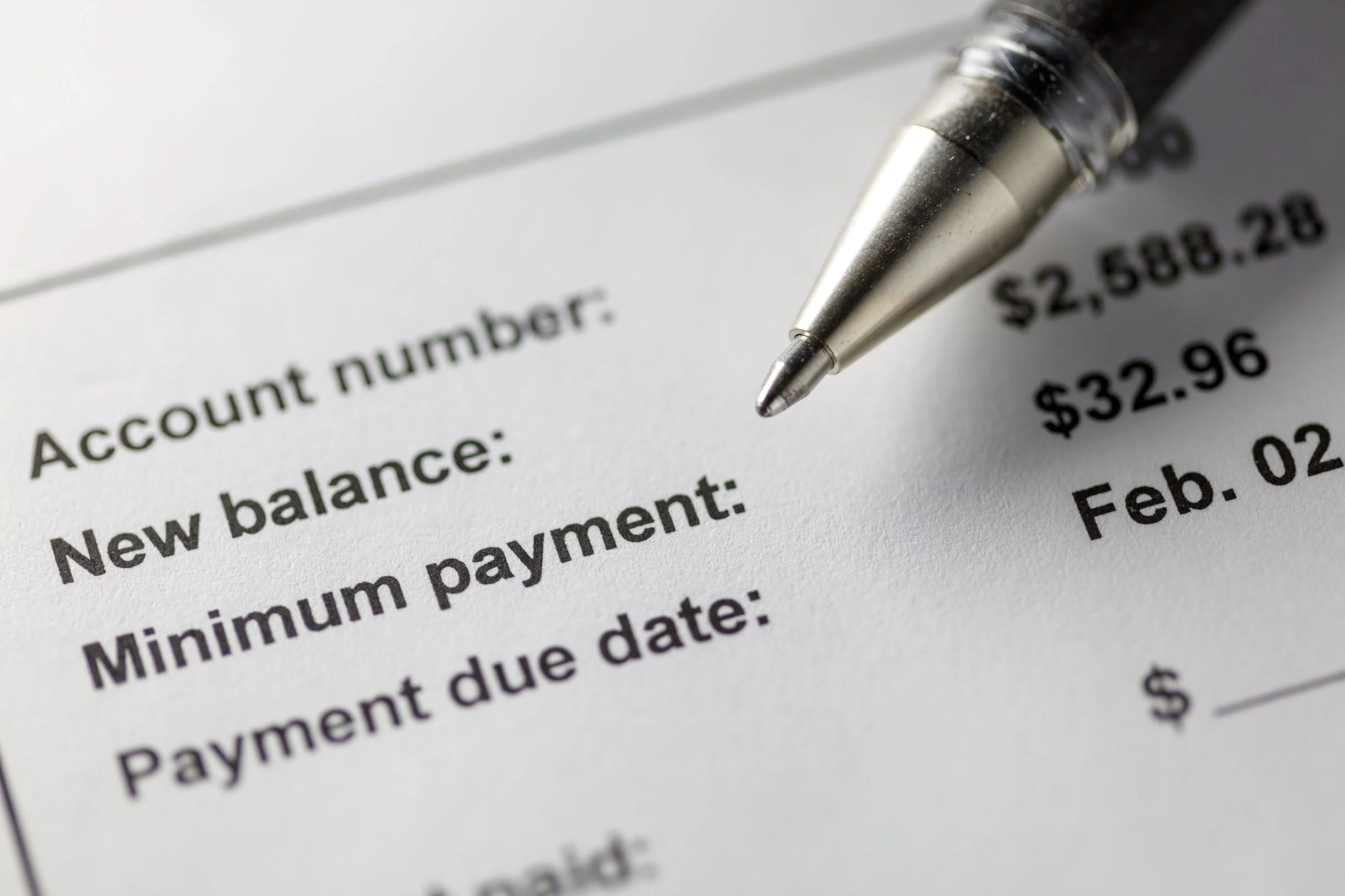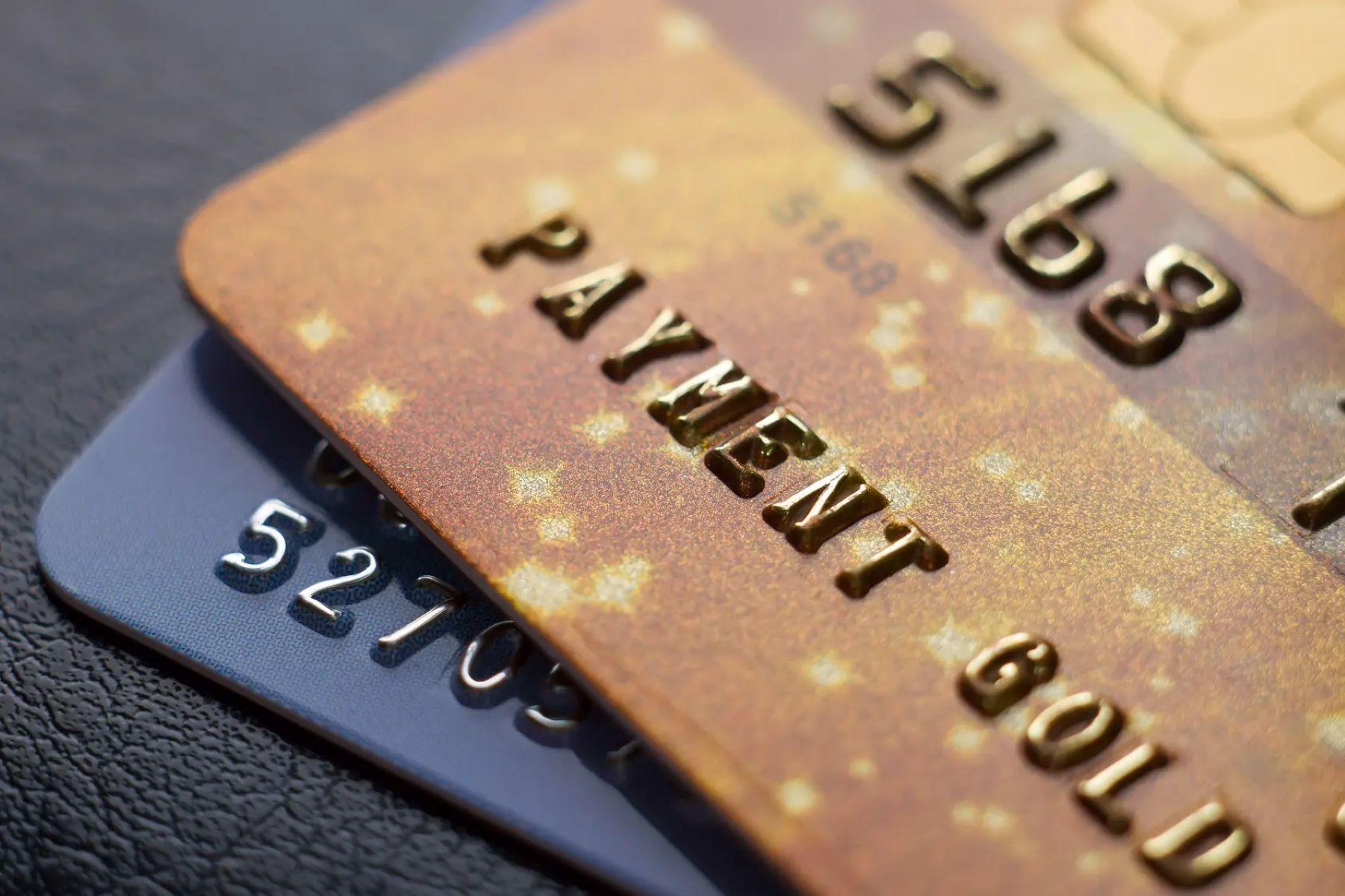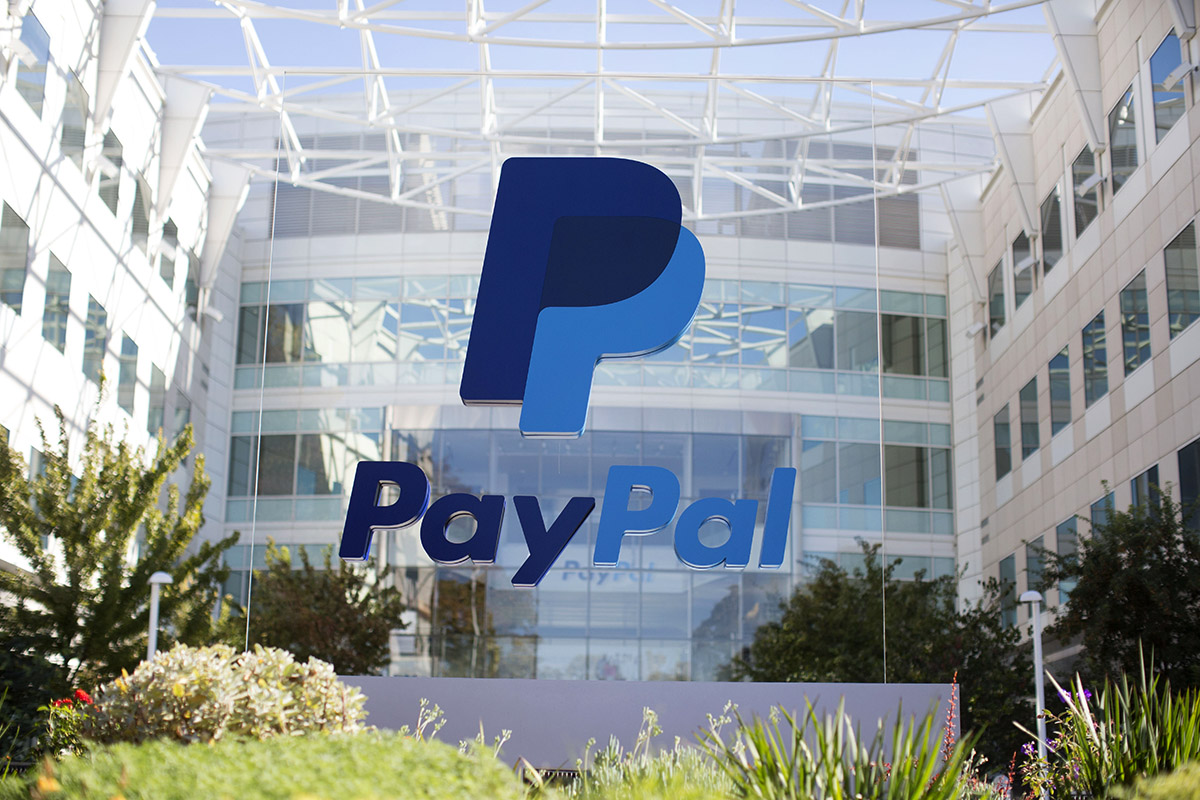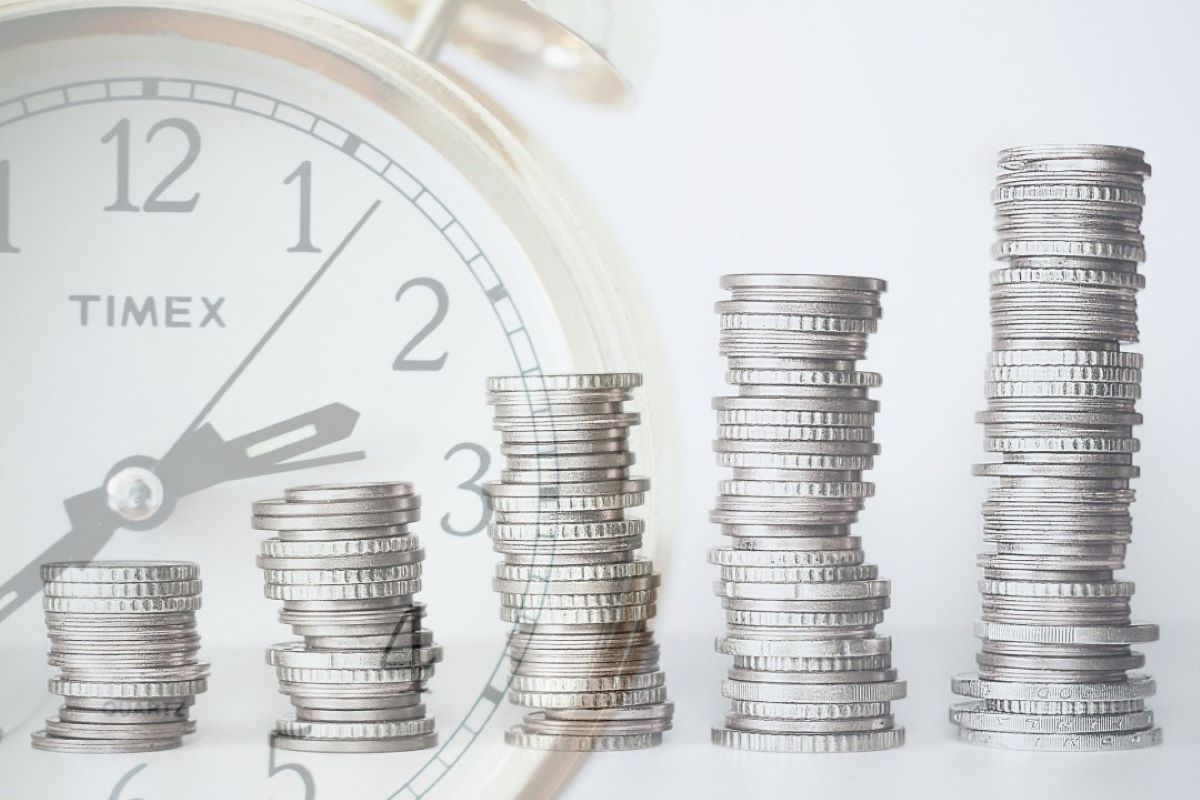

Finance
How To Change Due Date On Credit Card
Modified: December 29, 2023
Learn how to change the due date on your credit card. Manage your finances effectively and stay on top of your payments.
(Many of the links in this article redirect to a specific reviewed product. Your purchase of these products through affiliate links helps to generate commission for LiveWell, at no extra cost. Learn more)
Table of Contents
Introduction
Managing credit card payments can sometimes be challenging, especially when the due date falls at an inconvenient time. Fortunately, many credit card issuers provide the option to change the due date to better align with your financial situation. This flexibility allows you to choose a more suitable day of the month when you are more likely to have funds available to make your payment.
In this article, we will explore the process of changing the due date on your credit card and discuss the reasons why you might consider making this adjustment. Whether you need to align your payment date with your monthly paycheck or simply want to consolidate your bill payment dates for better organization, understanding how to change your credit card due date can be a valuable financial tool.
Before we dive into the steps involved, let’s first establish a basic understanding of credit card due dates and why they are important. This knowledge will help you make informed decisions when it comes to managing your credit card payments effectively.
Understanding Credit Card Due Dates
Credit card due dates refer to the deadline by which you are required to make your monthly payment to your credit card issuer. It is essential to understand and adhere to your credit card’s due date to avoid late payment fees and potential negative impacts on your credit score.
Most credit card issuers assign due dates based on a specific day of the month, such as the 15th or the last day of each month. It is crucial to review your credit card statement or online account to identify your current due date.
It’s important to note that credit card companies generally give you a grace period, typically between 21 to 25 days, from when the billing cycle ends to make your payment. This grace period allows you to repay the outstanding balance in full without accruing interest charges.
Understanding your credit card’s billing cycle is also key to managing your payments effectively. The billing cycle is the duration between two consecutive credit card statements. Transactions made during this time are compiled, and a statement is generated at the end of the billing cycle.
To ensure timely payments and avoid any potential late fees, it is crucial to plan ahead and make your credit card payments well before the due date. But what if the current due date does not align with your financial situation? Let’s explore some reasons why you might want to change your credit card due date.
- Inconvenient Timing: Your current due date may fall on a day when you typically have lower funds available. Changing the due date allows you to align it with a day that works better for your budgeting cycle.
- Consolidating Bill Payments: If you have multiple bills to manage, changing the due date can help you align all your payment dates for better organization and ease of tracking.
- Matching Paycheck Schedule: Adjusting the due date to coincide with your payday can ensure that you have sufficient funds available to make your credit card payment on time.
- Budgeting and Cash Flow: Changing the due date can help you better manage your cash flow and budgeting by aligning it with other financial obligations and commitments.
Reasons for Changing Credit Card Due Dates
There are several valid reasons why you might consider changing your credit card due date. By adjusting the due date, you can better manage your finances and ensure timely payments. Let’s explore some common reasons why individuals opt to change their credit card due dates:
- Aligning with Income Timing: One of the most common reasons for changing the credit card due date is to synchronize it with your income. If your current due date falls before or too close to your paycheck, it may be challenging to have sufficient funds available for payment. By aligning the due date with your income, you can ensure that you have the necessary funds to pay off your credit card balance on time.
- Consolidating Payment Dates: Managing multiple bill payment dates can be overwhelming and increase the risk of missing payments. Changing the credit card due date to align with your other bill due dates can help streamline your financial obligations and make it easier to stay organized. Consolidating payment dates also ensures that you have a clear overview of your monthly financial responsibilities.
- Budgeting and Cash Flow: Adjusting the credit card due date can be helpful when it comes to budgeting and managing your cash flow. By aligning the due date with your financial commitments or anticipated cash inflows, you can distribute your funds more effectively and avoid unnecessary financial stress. This way, you can allocate sufficient money towards your credit card payment without compromising other essential expenses.
- Accounting for Seasonal Expenses: Many individuals face seasonal fluctuations in their expenses. For example, holiday months may bring added financial burdens such as gift purchases and travel expenses. By changing your credit card due date to a time when you have fewer financial obligations, you can better accommodate these seasonal expenses and ensure that you can comfortably make your payments without straining your budget.
- Simplifying Financial Management: Adjusting the credit card due date can help streamline your financial management. When the due date aligns with your other financial activities, such as budgeting or tracking income and expenses, you have a more cohesive financial system. This simplification can help reduce the risk of forgetting payment due dates and ensure a smoother financial workflow.
Keep in mind that the ability to change your credit card due date may vary depending on your credit card issuer. It is important to check with your card issuer’s terms and conditions or contact customer service to understand their specific policies regarding changing due dates.
Now that you understand the reasons for changing your credit card due date, let’s dive into the steps involved in making this adjustment.
Steps to Change Credit Card Due Date
Changing your credit card due date is a straightforward process that can usually be done through your credit card issuer’s online portal or by contacting their customer service. Here are the general steps to follow:
- Review Credit Card Terms: Before proceeding with changing your credit card due date, review the terms and conditions of your credit card. Familiarize yourself with any relevant fees or restrictions associated with changing the due date. This will ensure that you are aware of any potential implications.
- Check Online Account: Log in to your credit card issuer’s online portal or mobile app and navigate to the account settings section. Look for an option to change or modify your due date. Some credit card issuers may require you to contact customer service to initiate the change.
- Follow Instructions: Once you have located the option to change your due date, follow the instructions provided by the credit card issuer. This may involve selecting a new due date from a pre-determined list of options or entering a specific date of your choice. Make sure to double-check the selected date before confirming the change.
- Confirmation: After submitting the request to change your due date, you should receive a confirmation message or email from your credit card issuer. This confirmation will typically include details of the new due date and any additional information regarding upcoming billing cycles.
- Adjust Automatic Payments: If you have set up automatic payments for your credit card, make sure to update the payment instructions to reflect the new due date. This will ensure that your payments are processed correctly and on time.
If you are unable to change your due date online or have any questions regarding the process, it is recommended to contact your credit card issuer’s customer service. They will be able to guide you through the necessary steps and assist you with any inquiries you may have.
It is important to note that some credit card issuers may have specific requirements or limitations when it comes to changing the due date. For example, there may be a waiting period before you can make the change or restrictions on the frequency of changes. Therefore, it is essential to review your specific credit card terms or consult with customer service for accurate information.
Now that you know how to change your credit card due date, let’s discuss some important considerations before making this adjustment.
Contacting Credit Card Customer Service
If you encounter any difficulties changing your credit card due date through the online portal or if you have specific questions or concerns, it is advisable to contact your credit card issuer’s customer service. They are equipped to assist you and provide the necessary guidance. Here are some steps to follow when reaching out to customer service:
- Gather Account Information: Before contacting customer service, gather your credit card account information, such as your account number, personal identification details, and any relevant statements or documents related to your credit card. Having this information readily available will help expedite the assistance process.
- Choose Your Preferred Contact Method: Credit card issuers typically offer multiple contact options, such as phone, email, or live chat. Choose the contact method that is most convenient for you. Keep in mind that reaching out over the phone may provide a more immediate response, while email or live chat may offer written documentation of the interaction.
- Explain Your Request: Clearly communicate your intention to change your credit card due date and specify your reasons for doing so. Provide any necessary details or documents requested by the customer service representative. Be prepared to answer any additional questions or provide further information to facilitate the process.
- Follow Instructions: Customer service representatives will guide you through the steps required to change your credit card due date. They may ask you to verify your identity or provide additional documentation if necessary. Follow their instructions carefully and ensure that you understand any changes or implications related to your request.
- Document the Interaction: Take note of the customer service representative’s name, the date and time of the conversation, and any important details discussed. This information can be useful for future reference or if any issues arise concerning your request.
- Follow Up If Needed: If you do not receive the desired outcome or have any unresolved concerns, don’t hesitate to follow up with the credit card issuer. Provide them with the details of your previous interaction and clearly articulate the issue you need assistance with. Persistent communication and clear documentation will help ensure that your request is addressed appropriately.
Remember to remain patient and polite when dealing with customer service representatives. They are there to assist you, and maintaining a respectful approach will contribute to a more productive and positive interaction.
Now that we’ve covered contacting customer service, let’s consider some important factors to keep in mind before changing your credit card due date.
Considerations Before Changing Due Date
Before making the decision to change your credit card due date, there are a few important considerations to keep in mind. These factors will help you determine if adjusting the due date is the right choice for your financial circumstances. Consider the following:
- Impact on Billing Cycle: Changing your credit card due date may affect the duration of your billing cycle. Ensure that you understand how the change will impact your future statements and how it aligns with your budgeting and cash flow needs.
- Interest Accrual: If you carry a balance on your credit card and change the due date, it’s crucial to be aware of how it may impact the interest charges you incur. Depending on when the new due date falls within the billing cycle, you may have more or fewer days of interest accrual. Review your credit card terms to understand the implications and make an informed decision.
- Consistency: Consider whether changing your credit card due date aligns with your financial goals and consistency in payment. If you have a solid system in place, altering the due date may disrupt your routine and potentially lead to missed payments. Evaluate the pros and cons to determine if the adjustment fits your financial management style.
- Other Financial Obligations: Take into account your other financial obligations and due dates. Changing the credit card due date to align with your income or other bill payments can help streamline your financial management. However, if the new due date coincides with other significant expenses or payments, it may create financial strain. Consider your monthly financial commitments before finalizing the change.
- Credit Score Implications: Changing your credit card due date should not have a direct impact on your credit score. However, it is important to continue making payments on time, regardless of when the due date falls. Late payments, even if they are within the new due date, can still negatively impact your credit score. It’s essential to stay vigilant and consistently make your payments by or before the due date.
- Long-Term Suitability: Assess whether changing your credit card due date is a short-term solution or a long-term strategy. Evaluate your financial goals, income stability, and overall financial management system to determine if adjusting the due date aligns with your long-term financial plans.
Ensuring that you carefully consider these factors will help you make an informed decision when changing your credit card due date. It’s important to evaluate your individual circumstances and choose an option that suits your needs and promotes responsible financial management.
Now that we’ve discussed the considerations, let’s conclude our discussion on changing credit card due dates.
Conclusion
Managing credit card payments can be made easier and more convenient by changing the due date to better align with your financial situation. Whether you need to synchronize it with your income, consolidate your bill payment dates, or simply improve your cash flow management, adjusting the due date can provide valuable flexibility.
In this article, we covered the importance of understanding credit card due dates and their relationship to your financial obligations. We explored various reasons why individuals choose to change their credit card due dates, such as aligning with income timing, simplifying financial management, or accommodating seasonal expenses.
To change your credit card due date, follow a few simple steps, which typically involve accessing your online account or contacting customer service. Additionally, we discussed the importance of maintaining a consistent payment schedule, considering the impact on your billing cycle, and being mindful of potential interest charges and credit score implications.
Before changing your due date, carefully evaluate your financial situation and long-term goals. Consider factors such as the impact on your budgeting and cash flow, consistency in payment management, and other financial obligations. By doing so, you can make an informed decision that aligns with your unique circumstances.
Remember, it’s crucial to continue making your credit card payments on time, regardless of the due date. Responsible credit card management plays a vital role in maintaining a healthy financial profile and credit score.
In summary, changing your credit card due date can contribute to better financial management and provide greater control over your payment schedule. Take advantage of this option, if available, to make your credit card payments more convenient and better suited to your financial needs.














